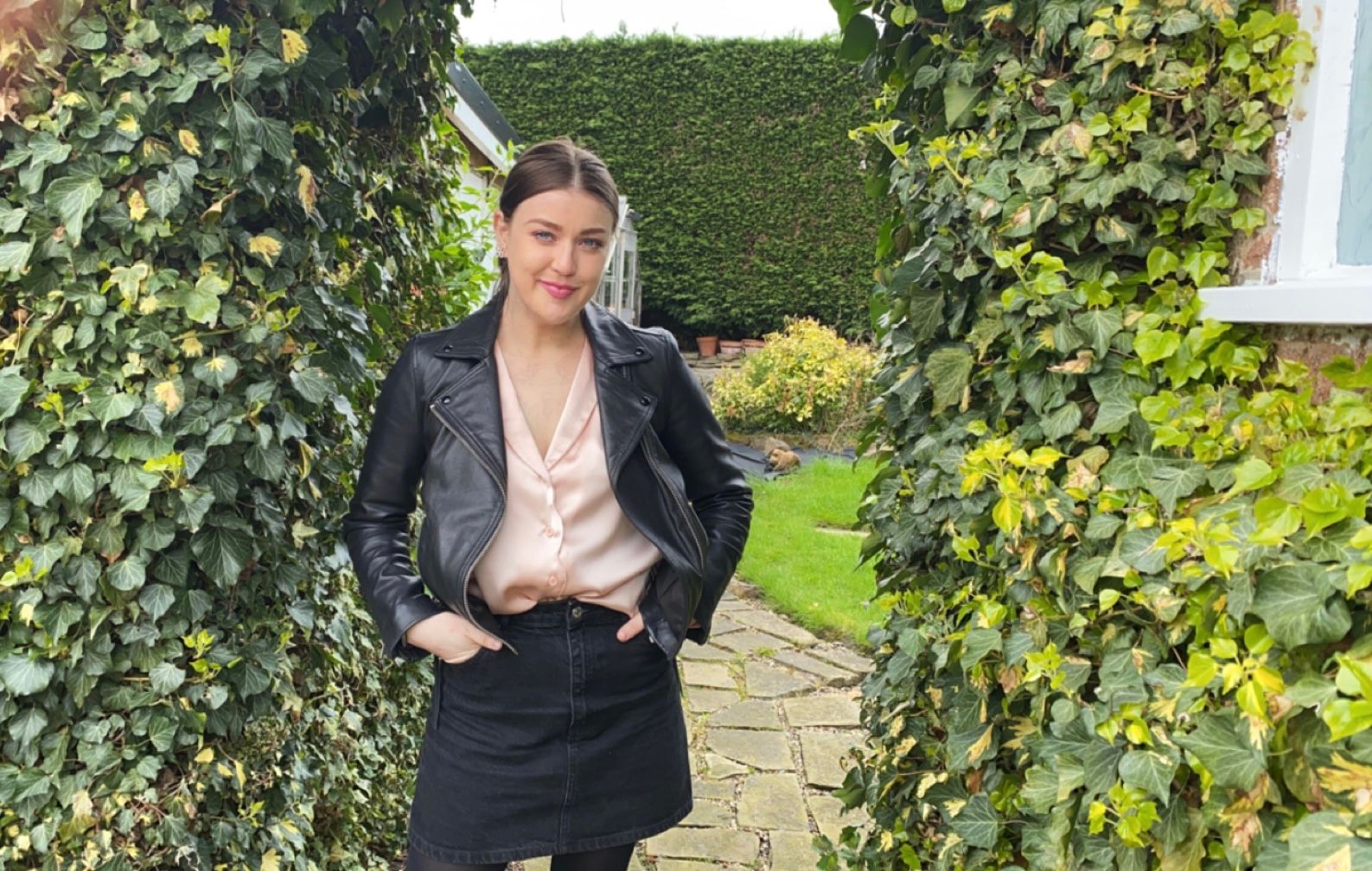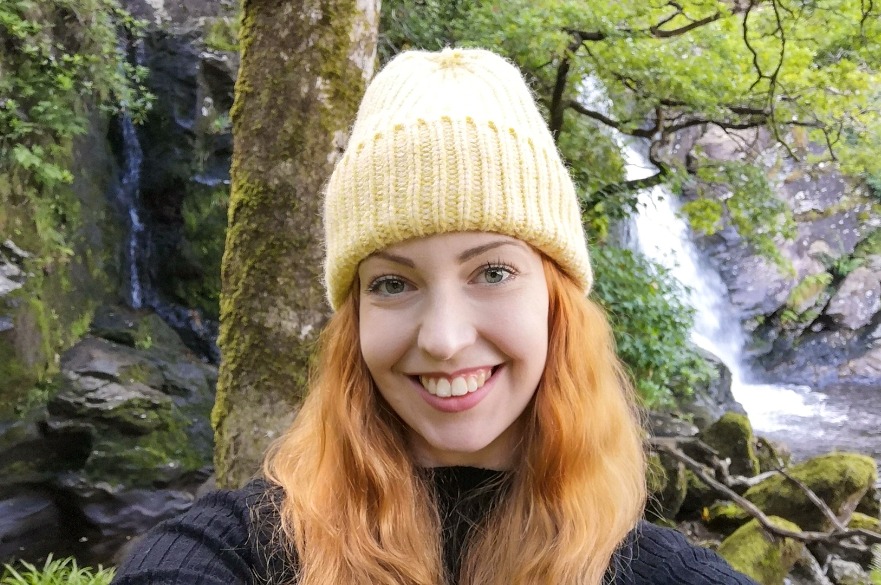
Sophie
Clark
Course studied: Access to HE Science
The tutors are incredibly supportive and relatable making the course enjoyable and more importantly, achievable.
More about Sophie
Why did you choose to study your course at Brackenhurst?
NTU Brackenhurst offered the Access Science course that is full time, in person and locally. After visiting on the open day, I was confident that the course offered the stepping stones to the BSc Hons course I have been aiming for (Biochemistry). The tutors are incredibly supportive and relatable making the course enjoyable and more importantly, achievable. The campus itself is really unique due to being located in a rural location surrounded by plenty of fields as well as the animal unit which you can visit.
Tell us more about your course. What do you enjoy studying the most?
The course is full time and fast paced however it is completely achievable. At present, the course spans over 3 days a week with the other days recommended as self directed study. The Science course this year has focused on physiology and health, chemistry and core biology as well as study skills to prepare you for assignments and University. The assignments issued varies between exams, academic posters, open book exams, reports, essays and lab reports providing variation and similar examples of what can be expected in higher education. The tutors are hands on and are more than happy to spare their time to help you, whether in person or via email they are always there for you. As an adult it can be daunting going back in to education however I’ve been reassured and more importantly have had fantastic feedback throughout ensuring success.
The laboratory lectures are some of my favourite lectures, for example becoming familiar with equipment as well as dissections, working with microscopes and even identifying functional groups in chemistry. The study skills module has provided valuable knowledge and skills such as referencing, planning, structural guidance for essays and reports as well as UCAS support.
What do you think about the facilities available on your course and what do you use the most?
The facilities available on campus are wonderful. The library is a great spot with a great choice of books to view as well as being able to request books from other campuses. The rooms available in the library are fantastic for team work and assignments especially during long gaps between lectures. Most recently an assignment required a few of us to work together to concoct a methodology for a lab report and we took advantage of the side rooms to plan.
The Lyth building offers a great selection of food and seating in a wonderfully new building overlooking a portion of the greenery. During warmer weather the woodlands near the accommodation offers seating and wonderful views.
The science lectures are mainly held in the Bramley building which offers great spaces with simple to use technology. All the lectures are uploaded onto the NOW learning room platform to view at a later date or download. The lessons can also be recorded and uploaded to listen back to at a later date. As the campus is in a rural location some of us can only get to Brackenhurst via car but parking facilities are available on site with a short walk to the Bramley building.
What do you think about Brackenhurst Campus? What do you get up to in your spare time?
When we have some free time between lectures a bunch of us tend to either venture into the library to continue with assignments, especially when there’s a few assignments on the go. If we’re not in the library chances are we can be found in the Orangery café sat catching up with each other as well as discussing any lectures to help one another. On occasions pop up stands visit the campus such as crepes, comic book stands, jewellery stands and much more. When the weather is nice it’s nice to take a walk around the campus, visit the donkeys and get some fresh air.
During lambing season some tutors offer the opportunity to venture to the farm where you can watch lambs being born, bonding and little lambs prancing around.
Throughout the year further education courses are subject to pastoral days which are for your wellbeing. Brackenhurst offers some unique experiences such as donkey grooming, dog walking, ferret handling, arts and crafts, volleyball, wreath making and much more.
The campus does offer a lot of extracurricular activities too.
Have you had any support from other departments? How was your experience accessing these / was the service helpful?
Study skills recommend arranging appointments with student support and employability to ensure you’re on track and being supported through any issue.
Throughout the year you receive 1:1 appointments with your tutor checking your progress, giving praise where necessary and providing support for the next steps. I took advantage of this time to check over my personal statement for UCAS as well as reviewing any feedback given and ways to improve. Should you feel you need a 1:1, you can request an appointment where they will liaise a suitable date and time for you to get the support needed.
What is your top tip for someone considering studying at Brackenhurst Campus?
As Brackenhurst is a rural campus, it is safe to say the campus can get a bit muddy so wearing suitable footwear such as boots or trainers is certainly recommended! An outdoor coat is also advisable.
Always remember to keep your lab coat in your bag to avoid forgetting it when you need it. We were provided with the lab coat during induction.
You can always use the libraries at other NTU locations such as Clifton or City if they are closer to you during self directed study. I have used Clifton library on occasions as that is the location of the Science School with a wider range of appropriate resources.
Open days are worth visiting both for the Access course and also future BSc prospective courses to provide confidence in your choices.
Don’t be afraid to take the plunge, the course is designed for all ages and all levels of knowledge. I purchased a few A-Level books in Biology and Chemistry prior to the start of the course to get a head start on the topics covered during the course. These books have been incredibly useful assistants alongside the assignments.
Have you been involved in any placements, work experience or volunteering as part of your course? If so, what did you do and what did you achieve?
I volunteered at the start of the course to be one of the two course representatives and was nominated. I attend the meetings with my fellow rep to report any concerns or positive feedback to FE administration where we are all actively listened to promoting improvements to the course and campus. We specifically asked for a microwave due to the cost of living crisis to heat up food from home, a microwave was then installed in the Brack Bar for student use.
Why would you recommend your course to someone considering studying it?
For a long time I had been looking for a route into University as I haven’t got the specific A-Levels required for the course I want to pursue. The course is well structured and tailored to higher education. I have visited a number of open days for Biochemistry and can confirm most modules in the first year are similar to the Access Science making a smooth transition between the levels of study. Study skills provide a number of skills which are needed for University which is something students transitioning from A-Level to University do not have in comparison. This has given me the confidence and reassurance as well as determination to start my degree in September.
The course and the assignments are well structured with the assignment brief being clear and instructive based on the topic taught. Rather than end of year exams you are assessed after each topic is complete.
Our tutor for chemistry has arranged numerous trips for her students including some of us if it’s appropriate. We’ve had the opportunity to view second year Microbiology students identifying antibiotic-producing bacteria as well as having the opportunity to speak with the head of admissions and the Microbiology lead lecturer. If you have a specific interest and ask, tutors will usually try their best to arrange something if there is enough interest.
If considering a future within a field of science, this course cannot be recommended enough, you’ll receive the support needed in a peaceful location with tutors who want to see you succeed. If I could take the tutors with me to University, I would!
What are your plans for after the course and how do you feel your course has / will help you to achieve that goal?
After completion of the course I intend to study Biochemistry at my firm choice of University. The ultimate goal is to develop a career within medical research as this is something I am deeply passionate about. The course provides the base knowledge needed to study more detailed and difficult topics. I have also had laboratory experience for both biology and chemistry which has given me the knowledge needed at University level as well as a taste for experimentation and writing laboratory reports.
I was fortunate enough to receive offers from all my choices and made my firm choice and insurance choice on UCAS which was made possible thanks to the guidance of the wonderful tutors.
Still need help?
-

STUDENT PROFILE
Charlotte Fowler
United Kingdom
https://www.ntu.ac.uk/study-and-courses/courses/our-students-stories/animal-rural-environmental-sciences/charlotte-fowler
-

STUDENT PROFILE
Olivia Radford
United Kingdom
https://www.ntu.ac.uk/study-and-courses/courses/our-students-stories/animal-rural-environmental-sciences/olivia-radford